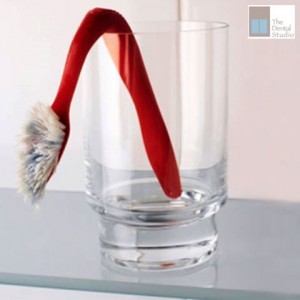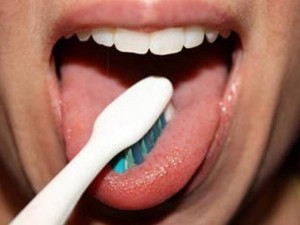How many times a day do you brush your teeth? Maybe the question should be how many times a week do you brush your teeth? Some people are obsessed with brushing some use gum as an alternative. What should be true is that everyone owns a toothbrush! The age of that brush might not be something you think about often. I do, but only because my aunt was a dental hygienist and a staple gift from her is a toothbrush with a note that reads, “time to change your brush”. Yes, every holiday and birthday (thankfully, that is not all she gives me). I always change my brush but only because one is given to me and I don’t have to think about it.
Studies debate that the effectiveness of toothbrush bristles reduces over time with continued use. Is that true? How often should a toothbrush really be changed?
Null Hypothesis: If one person doesn’t change their toothbrush periodically after using it twice daily, and another person does change their toothbrush periodically after using it twice daily, there is no difference in the formulation of plaque on their teeth.
Alternate Hypothesis: If one person doesn’t change their toothbrush periodically after using it twice daily, and another person does change their toothbrush periodically after using it twice daily, the person who doesn’t change their toothbrush will accumulate more plaque on their teeth.
Background
I feel compelled to first talk about toothbrush cleanliness. This post, published by healthcloud, shares some gross points about how we store our toothbrushes and the potential bacteria buildup, depending on our practices. It also shares how to reduce bacteria build-up. One of them is to not store your toothbrush in a closed container and to be sure it dries out before your next use (I bet many of us do use toothbrush containers since it hard to store your toothbrush in the dorm rooms!). It also suggests replacing toothbrushes every 2-4 months, supporting the alternate hypothesis.
Research
In an article published by Europe PubMed, PubMed, 2 independent studies were conducted to determine the effectiveness of a worn toothbrush versus a new one in removing plaque from teeth. The subjects were asked to brush 2 times a day for 3 months using an assigned toothbrush. The subjects’ teeth were examined prior to the tests, which was conducted for 1 week. Note: Plaque hardens into tartar in 48 hours.
Study 1 assessed manual toothbrushes and required subjects to brush for one minute, 2 times a day, with either the brush used for 3 months or a new brush provided. Study 2 assessed battery operated toothbrushes and required subjects to brush for 2 minutes, 2 times a day, with either the brush used for 3 months or a new brush provided. Subjects for both tests who were picked for new brushes were selected randomly. The conclusion reached for both studies was that plaque removal was significantly more for those using new brushes when compared to used brushes with worn bristles. Results did show that in some instances, plague scores for whole-mouth assessment for plague was not significant but was significant in approximal sites, or locations where adjacent teeth contact each other.
Confounding variables for these studies could be the amount of times subjects truly brushed their teeth during the three-month pre-test period and the testing period. If brushing did not take place as instructed, most likely the results would be even stronger as wear on the brushes would be greater.
Another Study, published by the Journal of Periodontology, was conducted using preclinical dental students. This study was more precise and the 40 subjects were tested so that none of them had any plaque on their teeth at the beginning of the study. They were divided into 2 groups with the first group using the same toothbrush for 10 weeks. The second group was given a new toothbrush to use every two weeks for the same 10 weeks. The conclusion was that those who used the same toothbrush for the 10-week period had developed significantly more plaque than the group who changed their brushes.
Conclusion
There is strong evidence in support of changing a toothbrush, periodically, to prevent plaque buildup. This rejects the null hypothesis and supports the alternate hypothesis. With regular use, the bristles of a toothbrush separate and become worn, rendering it less effective. Recommendations for replacement time vary. The third study reviewed replaced brushes every 2 weeks, which doesn’t seem reasonable or cost effective, especially for college students. I did search for a while to find the general recommendation, which I conclude is every 3 months. It really depends on how you store your toothbrush and how often you brush. Certainly, if it looks worn, replace it!
A topic for another blog would be about HOW we brush our teeth. I saw this photo during my research and had to add it since Andrew mentioned in class the lack of evidence concerning the benefits of brushing your tongue. Everything I have read so far agrees with that conclusion. Most indicated that the benefit of brushing your tongue is to reduce bad breath – helpful tip!
References
Google Scholars: healthcloud What’s on your toothbrush?
http://www.thehealthcloud.co.uk/whats-on-your-toothbrush/
Google Scholars: Europe PMC An investigation into the effect of three months’ clinical wear on toothbrush efficacy: results from two independent studies.
http://europepmc.org/abstract/med/12723100
Note: reference on tartar creation
http://topdentists.com/problem-solvers/excess-plaque/
Google Scholars: Wiley Online Library, Journal of Periodontology
Toothbrush age and wear as it relates to plaque control
http://onlinelibrary.wiley.com/doi/10.1111/j.1600-051X.1986.tb01414.x/full
Photos



I had a very similar idea to this post that I never did which was does the type of toothbrush we use matter? I feel like there are hundreds of different types of toothbrushes with different shapes and fancy things on them and I wondered if any of that really mattered. I bet if someone did research on how to effectively brush your teeth the type of toothbrush wouldn’t be that significant. Anyways, here is some research i found on whether it is better to use an electric or regular toothbrush. https://www.jeffersondentalclinics.com/blog/2014/04/30/manual-toothbrush-vs-electric-toothbrush-pros-and-cons-jefferson-dental-clinics/
I really enjoyed reading this post because I take really great care of my teeth and treated them as my prized possessions. As I was reading through your conclusion I kept repeating in my head “every 3 months, every 3 months, every 3 months” because I was always told to switch out your tooth brush every 3 months. And sure enough! that it what you concluded! I work in a dentist office at home during the summer and I have learned from working there that oral hygiene is very important. A new a popular toothbrush however is electric toothbrushes. Even though they have great benefits in helping keep your teeth clean, but even the brush heads on those must be replaced every so often! as explained here!
Hello Michael. This post caught my attention because I wrote a blog about halitosis (bad breath) in the last blog period. While I do suppose the main purpose of brushing our teeth is to remove plaque, like you mentioned, I was surprised that there was no mention of how using a toothbrush for too long can contribute to bad breath. In the following article, there is a little piece of information explaining how keeping your toothbrush for too long creates the bacteria that makes your breath smell. http://www.webmd.com/oral-health/healthy-mouth-15/your-healthy-mouth/the-ugly-truth-about-your-toothbrush
Hi Mansi – thank you for your interest in my post. I agree that there are many aspects of brushing one’s teeth that can be explored. I actually mentioned at the end of this blog that a great blog topic would be about HOW to brush your teeth, which could definitely lead to suggested do’s and don’ts. This blog focused on the effectiveness of a toothbrush to eliminate plague after continual use.
This article is interesting because it shows the other variables that affect the bent bristles rather than just wear and tear. The other variables could be the wetness, bacteria, and the drying position of the brush after it is used. Check out this article by Colgate. They tell you when to replace your toothbrush! http://www.colgate.com/en/us/oc/oral-health/basics/brushing-and-flossing/article/toothbrush-care-and-replacement
This was a interesting read. One of the first things I thought of when I read the title was that bent bristles can arise from many things asides just from wear and tear. Some of these external factors are how forcefully you brush your teeth, at what direction your brush, if you close or open your mouth while brushing, , softness of bristles, etc. I didn’t know that the toothbrush should be completely dried before the next use. Is this because there are more bacteria present when the bristles are wet? Here is an article regarding the pros and cons of soft vs hard toothbrush bristles: http://www.colgate.com/en/us/oc/oral-health/basics/selecting-dental-products/article/soft-vs-hard-toothbrush-0316
Michael- your post caught my eye primarily because I’ve found that I’ve been changing my toothbrush very often, especially recently. The reason for this is not because of anything regarding hygiene, but rather because I’ve dropped my toothbrush on the PSU dorm bathroom floor too many times. Maybe it will turn out to be a good thing, as I’m sure my teeth will stay clean with all my new toothbrushes. I found this article, posted by Colgate, that elaborates on toothbrush care and replacement.
http://www.colgate.com/en/us/oc/oral-health/basics/brushing-and-flossing/article/toothbrush-care-and-replacement